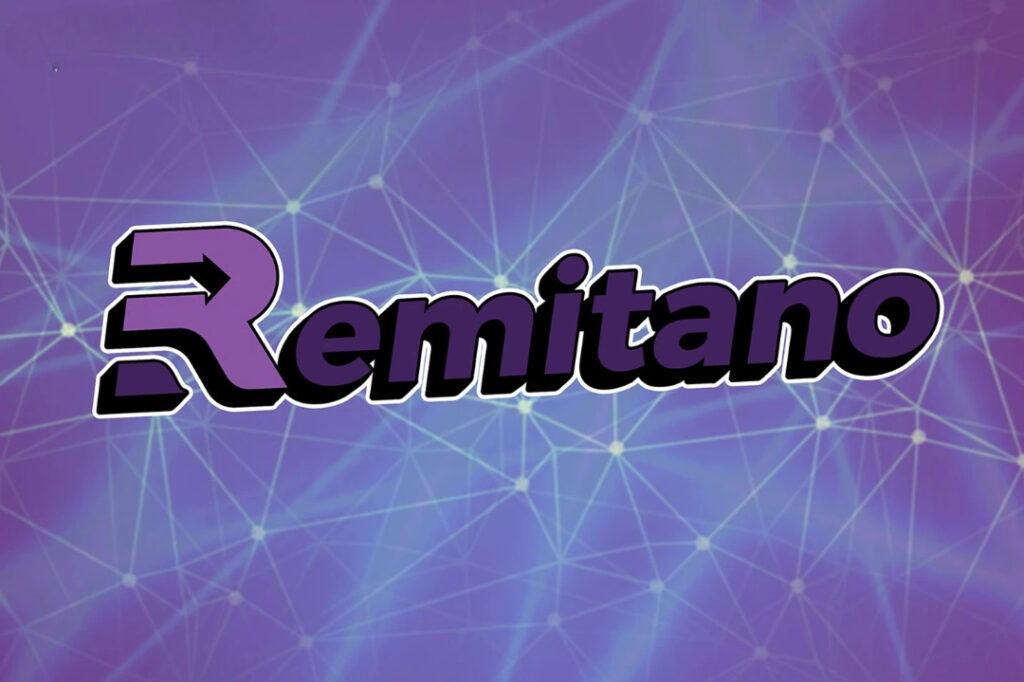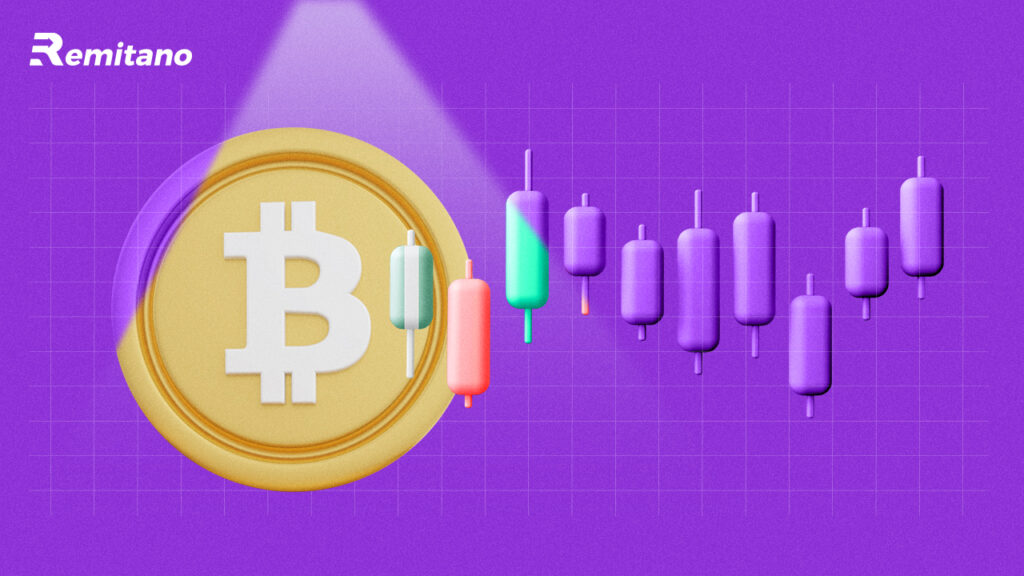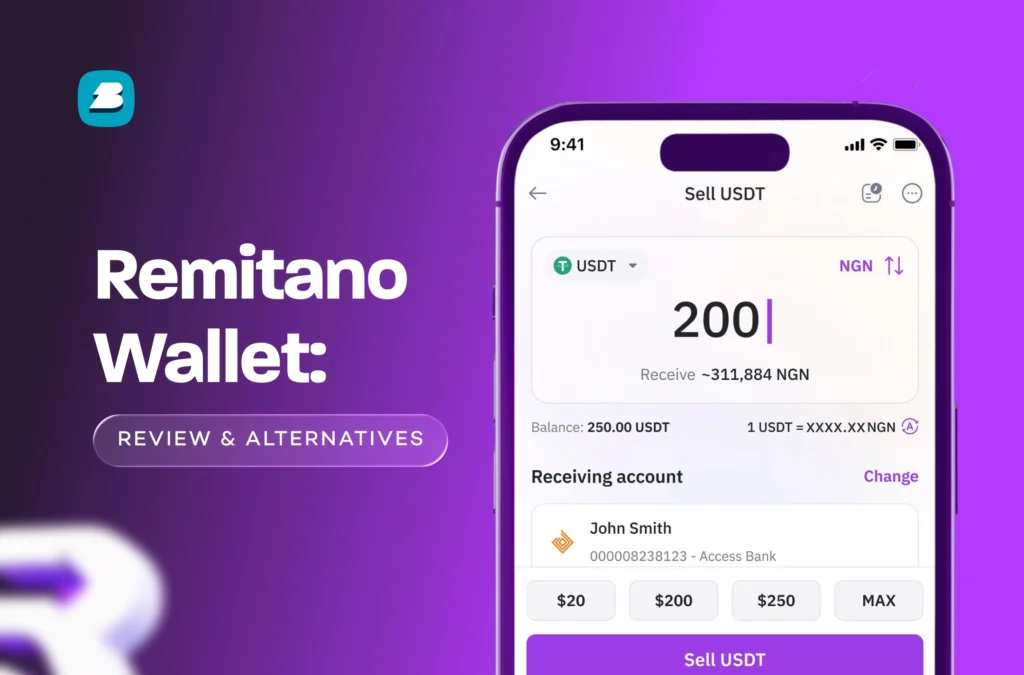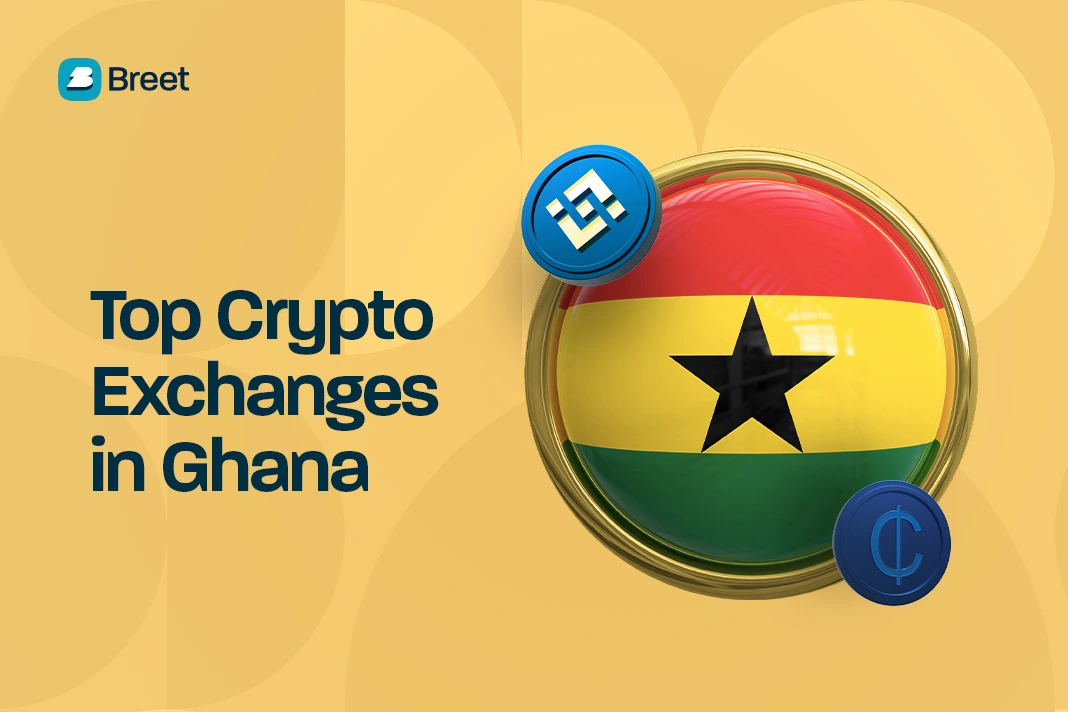If you’re just starting out with cryptocurrency, one of the first decisions you’ll face is where to store your digital assets.
A crypto wallet is not just a storage tool, it determines how secure, easy, and convenient your trading journey will be.
Among the many options available today, Remitano Wallet has become popular, especially in Nigeria and Ghana where crypto adoption is growing.
Aside from being a wallet, it’s also linked to the Remitano P2P exchange, making it a common choice for users who want to buy, sell and swap crypto.
In this review, we’ll cover what remitano wallet is, how it works, its key features, and the best alternatives if you’re looking for a different crypto wallet.
What is Remitano Wallet?
Remitano Wallet is the digital wallet of Remitano, a global P2P cryptocurrency exchange founded in 2015. The wallet allows you to store, send, receive, and trade crypto within the Remitano platform.
Unlike standalone wallets like Trust Wallet or MetaMask, Remitano Wallet is linked with the exchange, which makes it a common choice for beginners and traders in countries where access to traditional banking is limited.
Who is it for?
Remitano Wallet is designed for:
- Beginners who want a wallet that allows them to buy, sell, and hold crypto.
- P2P traders who frequently exchange Bitcoin, Ethereum, or stablecoins with local currencies.
- Users in emerging markets like Nigeria and Ghana, who want fast access to crypto without relying on international exchanges.
Related:
- The Best 7 Busha Wallet Alternatives in 2025
Key Features of Remitano Wallet
Remitano Wallet is a convenient and functional choice compared to many other exchange-based wallets. Here are the main features you should know:
Security
- Two-Factor Authentication (2FA): This adds an extra layer of protection when logging in or making withdrawals.
- Escrow Protection: Every P2P trade on Remitano is backed by an escrow system, ensuring buyers and sellers are protected from fraud.
- Centralized Custody: Unlike non-custodial wallets, Remitano manages your private keys. This makes it easier for beginners but gives the platform more control over your funds.
Supported Cryptocurrencies
Remitano Wallet supports most of the major coins used in everyday trading, including:
- Bitcoin (BTC)
- Ethereum (ETH)
- Tether (USDT)
- Binance Coin (BNB)
- Bitcoin Cash (BCH)
- Other popular altcoins
User Experience & Mobile App
- Multi-platform Access: Remitano Wallet is available via web, Android, and iOS apps.
- Simple Interface: It has a simple design which makes it easy to navigate even if you’re new to crypto.
- Instant P2P Integration: You can buy or sell crypto directly in the app without moving funds to another wallet.
Fees
- Internal Transfers: Sending funds between Remitano Wallet users is free.
- External Transfers: Standard blockchain network fees apply when sending to another wallet.
- Trading Fees: P2P trades on Remitano include separate transaction fees, depending on the coin and region.
Related:
Global Accessibility
- Supports users in multiple countries across Africa, Asia, and beyond.
- Links with local cash payment methods, making it easier for people without access to international exchanges to participate in crypto trading.
Pros and Cons of Using Remitano Wallet

Like any other crypto wallet, Remitano Wallet has its strengths and limitations. Here’s a balanced look at both sides:
Pros
- Beginner-Friendly: The wallet is simple to set up and easy to use, making it a good choice for people just starting their crypto journey.
- Free Transfers Between Users: Sending funds to another Remitano Wallet user comes with no transaction fees.
- Built-In P2P Exchange: You can buy, sell, and trade crypto instantly without moving assets to another platform.
- Multi-Platform Access: Available on desktop and mobile, so you can trade on the go.
- Escrow Protection: Provides added security for peer-to-peer transactions.
Cons
- Custodial Wallet: Users don’t control their private keys, Remitano holds them, which reduces full ownership of assets.
- Limited Coin Selection: Supports only a handful of cryptocurrencies compared to non-custodial wallets like Trust Wallet or MetaMask.
- Withdrawal Fees: Sending crypto outside the Remitano ecosystem comes with blockchain fees that can be higher than alternatives.
- Geographic Restrictions: The wallet isn’t accessible in some countries due to regulatory issues.
- Less Flexibility: Unlike DeFi-focused wallets, Remitano Wallet doesn’t connect with dApps, NFTs, or advanced blockchain features.
Top Pick:
Is Remitano Wallet Safe and Reliable?
Security is one of the biggest concerns when choosing the best crypto wallet, and Remitano Wallet offers a mix of protections.
Security Measures
- Two-Factor Authentication (2FA): Protects logins and withdrawals with an extra layer of verification.
- Escrow Protection: Ensures that both parties in a P2P transaction are protected until payment is confirmed.
- SSL Encryption: Helps secure user data and transactions on the platform.
Custodial vs Non-Custodial
Remitano Wallet is a custodial wallet, which means, Remitano controls your private keys. While this makes it easier for beginners, it also means you don’t have full ownership of your funds.
If Remitano’s servers go down or the company faces restrictions, access to your crypto could be affected.
Track Record & Trust
- Established in 2015, Remitano has operated for nearly a decade and is widely used in countries like Nigeria and Ghana.
- It has built a reputation for P2P trading with millions of users, though it’s not as globally recognized as exchanges like Binance or Coinbase.
- While no major hacks have been reported, users should always practice caution when storing large amounts of crypto on custodial wallets.
Remitano Review: What Are Users Saying About The Platform?
Here’s what users in Nigeria are saying about Remitano:
Reputation & Rating
- On Pissedconsumer, Remitano holds a 3.0 / 5 average from 28 reviews.
- On Sitejabber, the overall rating is 3.3 / 5 from over 1,000 reviewers.
- Its store rating is cited as 4.4 / 5 on Google play store and 4.5 / 5 on Apple store.
What Users Appreciate:
- Ease of Use & P2P Security
Some users praise how the escrow system gives confidence in trades:
“Very fast and reliable especially when withdrawing and buying of coin” - Well-Established in Nigeria
Because Remitano has been around for a while, many users trust its name and its local presence.
Common Complaints
- App Access & Crashes
“Can’t access the app … app hasn’t been opening since yesterday” - Unreceived Crypto / Delayed Credits
“I sent BTC … I still haven’t received it …” - Withdrawal / Account Lock Issues
“For some days now they can’t let me withdraw my money … don’t give me access to customer care … I think this app … is a scam.”
Related:
- Crane Crypto Review: Is it the Best Exchange for You?
Summary
While Remitano continues to enjoy trust among many Nigerians backed by positive ratings on app stores and its local reputation, there are consistent usability and support complaints, especially around app stability, withdrawal delays, and account access.
If you plan to use Remitano wallet or exchange in Nigeria, it’s wise to keep transactions moderate and always maintain backups or alternative wallets in case of access issues.
Best Alternatives to Remitano Wallet

While Remitano Wallet is a good crypto wallet, it may not be the best fit for everyone, especially if you want full control of your funds, lower fees, or broader crypto support. Here are some of the best alternatives to consider:
1. Breet Mobile Wallet
- Best for: Nigerians who want to cash out crypto quickly.
- Converts crypto directly to local currency with instant bank withdrawals within 287 seconds.
- No hidden charges and zero withdrawal fees.
- Beginner-friendly with simple, cash-focused functionality.
2. Trust Wallet
- Best for: Users who want full ownership of their assets.
- A non-custodial wallet, meaning you control your private keys.
- Supports millions of tokens across multiple blockchains.
- Ideal for DeFi, NFTs, and connecting with Web3 apps.
3. Binance Wallet (via Binance App)
- Best for: Active traders who want advanced features.
- Direct access to Binance’s exchange with deep liquidity.
- Supports a huge range of cryptocurrencies.
- Offers extra services like staking, futures, and savings.
4. Luno Wallet
- Best for: Beginners in Africa and Asia.
- Simple and easy to use with a focus on Bitcoin and Ethereum.
- Offers recurring buys and educational tools for new users.
- Regulated in some countries, which boosts trust.
5. MetaMask
- Best for: Advanced users exploring Ethereum and Web3.
- Fully non-custodial—your keys, your coins.
- Connects to dApps, NFTs, and DeFi platforms.
- Widely supported by most blockchain projects.
Don’t Miss:
Conclusion on Remitano Wallet
Choosing the right crypto wallet is about balancing convenience, security, and control. The Remitano Wallet stands out for its link with the Remitano P2P exchange, making it easy for beginners and traders to buy, sell, and store crypto in one place.
However, its custodial nature and limited flexibility mean it may not be the best option for long-term holders or users who want full control of their assets.
If you’re after simplicity, prioritize ownership, lower fees, or wider coin support, alternatives like Breet, might be a better fit.
Ready to get started? Download Breet!








